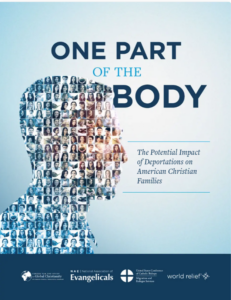
TALLAHASSEE, Fla. (BP)–With a Nov. 15 deadline approaching for possible legal action against a vote to legalize slot machines in Miami-Dade and Broward counties, one challenge already is working its way through the courts.
The first of two pretrial hearings is slated Nov. 29 on a lawsuit contesting the validity of petitions used to place Amendment 4 on the Nov. 2 ballot.
Several groups, including No Casinos, Inc., are contemplating lawsuits against the election results. After trailing by narrow margins for two days, the “yes” votes suddenly vaulted to a 93,000-vote victory on Nov. 4. If the results stand, Amendment 4 will enable residents of the two Florida counties to hold referendums on whether to place slot machines at seven pari-mutuel betting facilities.
Most of the 93,000-vote margin is attributed to a reported undercount of absentee ballots in Broward County. Of 78,000 absentees, 74,000 reportedly favored the initiative.
“It certainly is an interesting coincidence that Miami-Dade and Broward counties count absentees after the deadline and suddenly find a 90,000 vote swing in their favor,” said Paul Seago, executive director of No Casinos, after the results were certified.
On Nov. 9, Seago told Baptist Press his group is still conferring with legal counsel about a possible lawsuit.
The first suit filed against the ballot measure, on Sept. 28, alleges various irregularities in the petition-gathering process. Named in the suit are Secretary of State Glenda Hood and a series of local elections officials.
Among the suit’s claims: The names of 33 dead people were included in documents submitted to place the issue before the voters.
The lawsuit was filed by Floridians Against Expanded Gambling, the U.S. Humane Society and Grey2K USA, a national animal rights group that opposes greyhound racing.
Although the group had sought to stop Amendment 4 from appearing on the ballot, a judge denied that request, according to Carey Theil, president of Grey2K.
The issue still before the court involves allegations of serious and significant problems that resulted in the verification of invalid -– and often fraudulent -– petitions in support of the slots initiative.
After the pro-gambling Floridians for a Level Playing Field group (also named as a defendant) submitted signed petitions on July 23, the plaintiffs say a New York research firm conducted an extensive survey and found:
— Of nearly 5,300 people they reached by phone, more than 3,500, or 68 percent, “stated unequivocally” that they did not sign any petition in support of the slots initiative.
— In Broward County, plaintiffs could only match 43 percent of those persons who purportedly signed a petition with a valid telephone number. The lawsuit said this abnormally high failure rate suggests many of the signatures are not valid, either because the person doesn’t exist or someone else signed the petition.
— When the plaintiffs tried to reach signers for whom a telephone number could be identified, 3,300 calls resulted in “operator intercepts,” meaning the numbers were either disconnected or no longer in service. Another 1,350 were the wrong number.
The lawsuit also contends that Floridians for a Level Playing Field (FLPF) hired and paid ARNO Political Consultants as much as $6.50 per name to gather signatures in support of the slots initiative.
“Such process allowed and invited the submission of fabricated signatures not signed by the true Florida voters to whom the signatures belonged,” the suit states.
The lawsuit notes that more than 488,000 valid signatures were required to place the constitutional amendment on the ballot. Although FLPF submitted nearly 527,000 signatures, the suit says because of invalid signatures the group failed to meet the legal requirements.
Also cited in the lawsuit are June 29-30 reports in the Pensacola News Journal that ARNO employees had been charged with forgery in other, past elections for allegedly collecting valid signatures on one petition and transferring them to another.
The lawsuit says some government officials believe that signatures were forged on petitions for both the slots initiative and an unrelated ballot measure.
“Election officials have discovered petitions with ‘similar penmanship’ and petitions with misspelled names or incorrect birthdates,” the lawsuit states. “In addition, election officials have reported that ‘many of the signatures don’t match the people on file at the … County Supervisor of Elections.’”
The verification process also was tainted, the lawsuit claims, using Miami-Dade County as an example of deficiencies in the procedures for signature verification.
According to the suit, the county administered a test to its absentee ballot signature checkers in August. Less than half of those signature checkers achieved a grade considered passing by professional standards, the suit says.
“On standardized tests recognized throughout the profession as legitimate … at least half of the Miami-Dade signature checkers were wrong in their attempts to compare and successfully match signatures in at least one out of every four instances,” the suit states.
–30–













